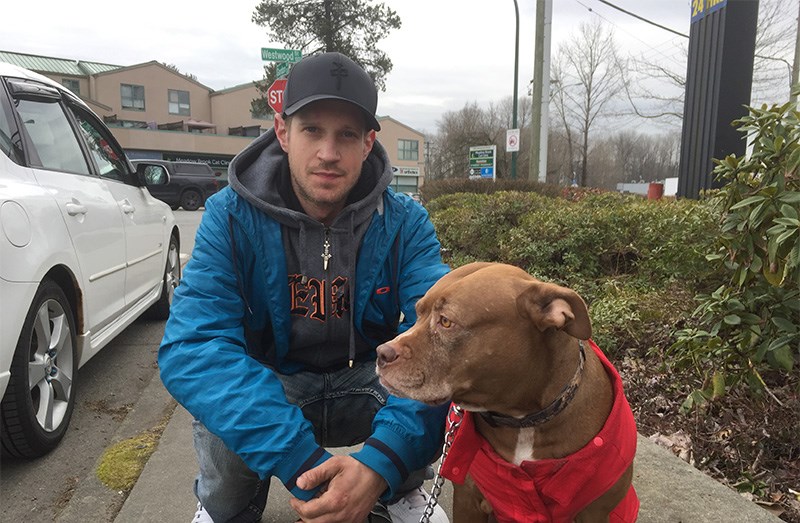A loitering bylaw, community cleanup and a community ambassador are among the actions Coquitlam is recommending to reduce problems associated with 3030 Gordon homeless shelter, according to a city report.
But the city’s mayor says unless the province, Fraser Health and other agencies dealing directly with homelessness and drug addition do more to help people, there is little the city can do to make a difference.
“Our task here is to mitigate, not eliminate — we are not going to be able to tackle all the challenges. We will try to make sure as much as possible the public isn’t impacted and the risks are managed,” said Richard Stewart.
The task force’s aims are to reduce community impacts from the shelter after residents and local businesses complained of loitering, disturbances and needles found in the area.
And after months of meetings, a list of priorities has been established to improve the situation.
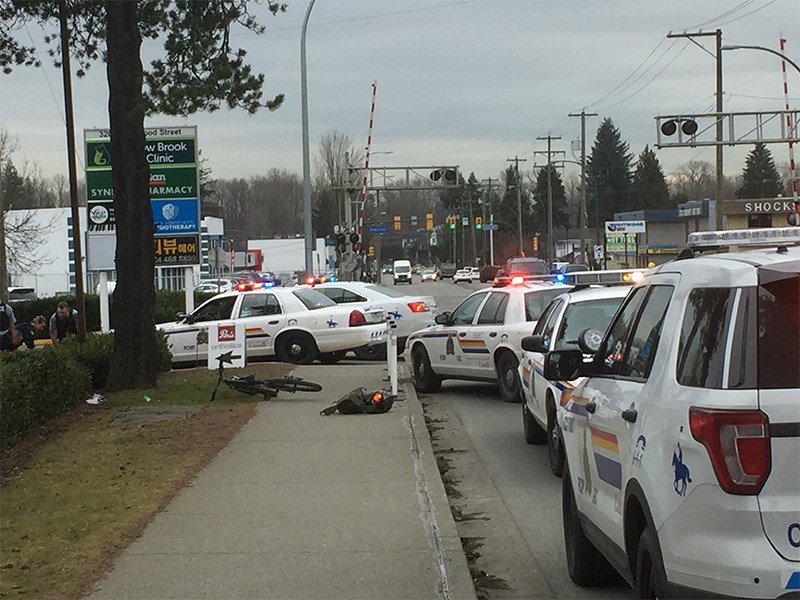
Top priorities include working with BC Housing to find sites and funding for a second shelter that would require abstinence to get a bed and more information about recovery programs that promote abstinence.
A number of the actions listed in a report to council this week would be provincial responsibilities — including funding an outreach team to address social issues and community impacts from mental health and addictions.
The city also wants more mental health and recovery options, including drop-in services to connect people who are homeless to services and programs.
Stewart said Riverview would be an ideal place for abstinence-based recovery programs, citing the success of opioid-replacement programs at the former mental health hospital which are already in place to help people overcome addiction.
“Put them all at Riverview, let’s make it so that we can hep hundreds. It’s amazing the model of mental health we can do today, we don’t just do it enough,” Stewart said.
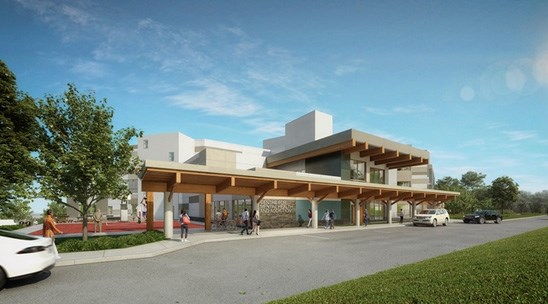
Not all the problems associated with drug additions and homelessness can be blamed on 3030 Gordon, Stewart said, and most were already in the area before the facility providing shelter and transition housing opened in 2015.
But he agreed social problems are concentrated there, requiring RCMP vigilance and visits by Coquitlam Fire Rescue to deal with emergency health issues.
On Wednesday morning when the Tri-City News visited the area four police cars with lights flashing arrived in nearby 3200 Westwood Street — a short walk from 3030 Gordon — to deal with a medical call.
The man had suffered an overdose, was revived by police, and sent to Royal Columbian Hospital for a further exam.
A spokesperson from Coquitlam RCMP noted the man was not a 3030 Gordon resident.
It's not unusual to see police in the area, Stewart admitted, and the shelter usually gets the blame.
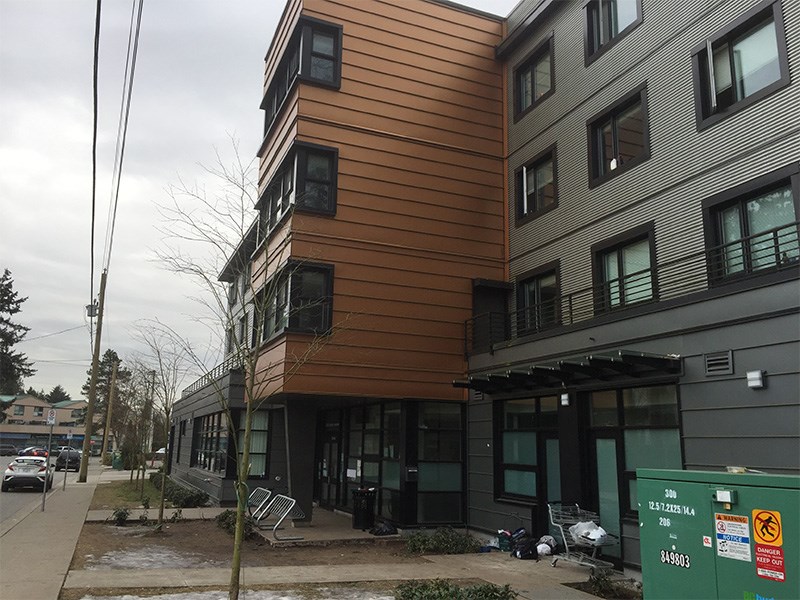
“It’s quite draining on policing, but those disorderly issues were around since before 3030 was built, they just weren’t as concentrated,” Stewart said.
Some local businesses near the facility expressed frustration to the Tri-City News about the facility they say has brought drugs, disorder and crime to the area.
Although he didn’t want his name used in the paper, one business owner said he had been personally threatened by a 3030 Gordon resident while another said he called police that week because someone in the area of the shelter fired a pellet gun.
The business owners said drug users are frequenting the area, a claim that can’t necessarily be blamed on the shelter, however.
One man who was walking his dog said the shelter is necessary and people outside the building are usually waiting to get in, not trying to cause problems. And he said he believes the shelter isn't creating a drug problem.
Dylan Wachowicz, who lived at the shelter for five months, and now lives nearby with a friend said the shelter is necessary for those who need it. “It’s good to help people,” said Wachowicz who works as a roofer.
“People need a place to go because everything is going up except wages.”
The area — currently a street of empty lots and automotive businesses — is in transition. There are many cars parked on both sides of Gordon Avenue left by people using nearby Medray Imaging and Screening Mammography centre.
Across from the shelter and transition housing facility, a commercial development is proposed by Accorde Properties.
Stewart said he thinks creating a loitering bylaw will help police deal with those spending time in the empty lot next door, a forest of tall trees and low grasses, where a group of men was hanging out.
Cleaning up properties, removing bushes are things property owners and the city can do to clean up the area, he said.
He personally carries a sharps box and picks up needles he sees, including a half dozen he saw in a neighboring city recently.
But the bigger problems of homelessness and drug addiction will take more muscle and money from agencies operating in and around the Tri-Cities, including Fraser Health, BC Housing and the provincial Ministry of Mental Health and Addictions, the mayor said.
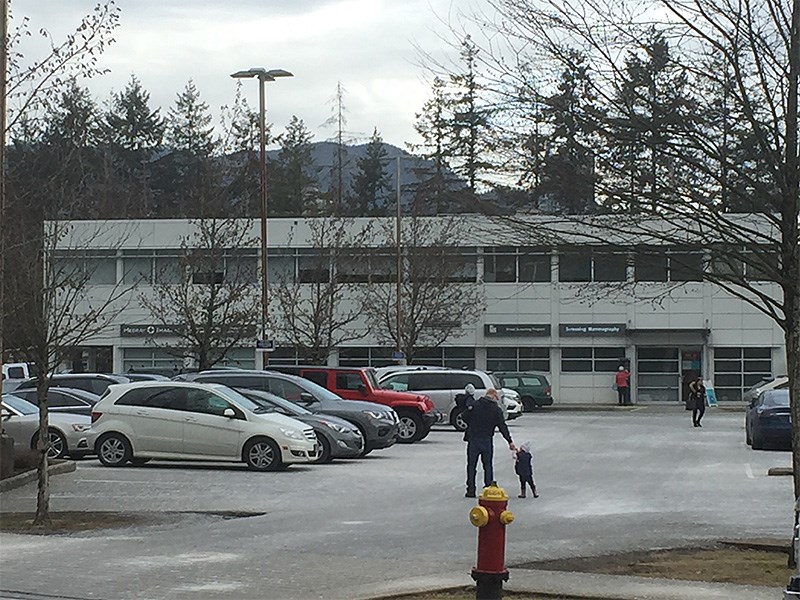
Stigma about homelessness may be part of the problem, but it’s also important for people to feel safe.
“It isn’t always a comfortable place to be and that’s a concern that we all share,” Stewart said.
